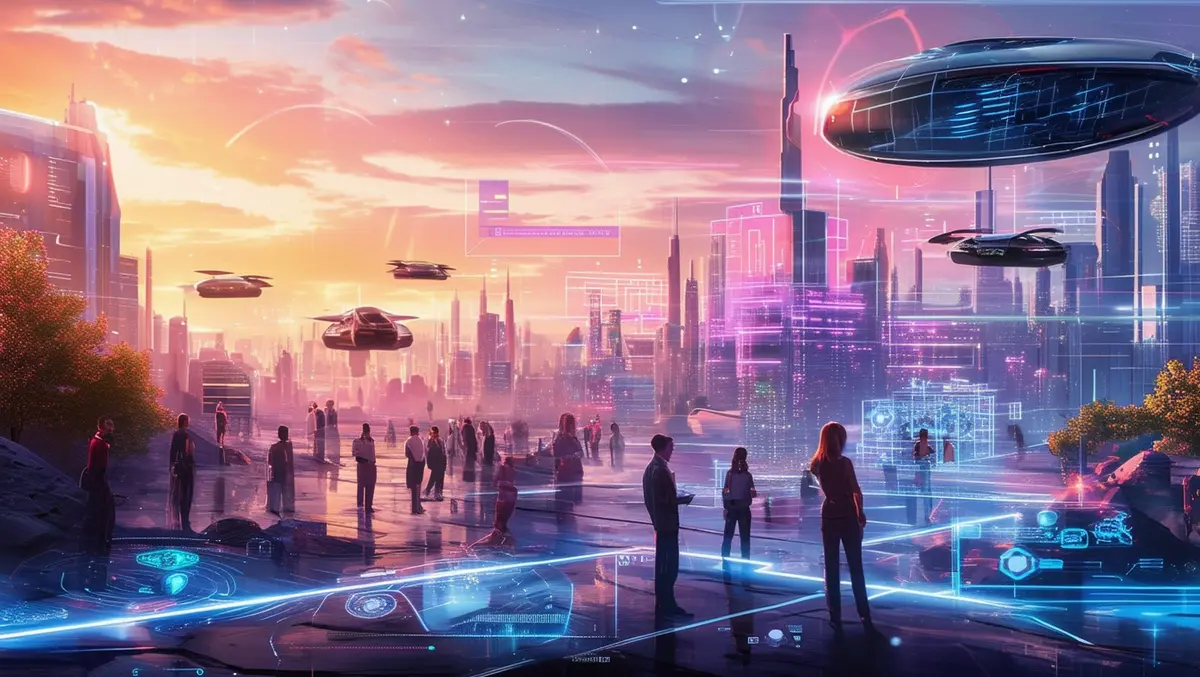
Gartner unveils top strategic technology trends for 2025
Gartner has announced its list of the top 10 strategic technology trends for 2025, highlighting areas organisations should consider exploring.
Gene Alvarez, Distinguished VP Analyst at Gartner, said, "This year's top strategic technology trends span AI imperatives and risks, new frontiers of computing and human-machine synergy. Tracking these trends will help IT leaders shape the future of their organisations with responsible and ethical innovation."
Among the defined trends is Agentic AI, a system designed to autonomously plan and execute actions based on user-defined goals. This offers organisations the potential to enhance productivity by supplementing human work. Gartner anticipates that by 2028, Agentic AI will be responsible for at least 15% of day-to-day work decisions, a significant increase from its current absence.
Another key area is AI Governance Platforms, part of Gartner's AI Trust, Risk and Security Management (TRiSM) framework. These platforms aim to manage AI systems' legal, ethical, and operational performance by maintaining policies for responsible AI use and providing necessary transparency. Gartner forecasts a 40% reduction in AI-related ethical incidents by 2028 among organisations implementing comprehensive governance platforms.
Disinformation Security has emerged as a crucial technology trend, focusing on maintaining trust by assessing authenticity and preventing impersonation. Gartner predicts that by 2028, half of enterprises will adopt solutions addressing disinformation security, a rise from less than 5% today, to combat the increased use of AI for malicious purposes.
Postquantum cryptography is set to address anticipated challenges posed by advancements in quantum computing. As traditional cryptographic methods may become obsolete, organisations must prepare for new methods to protect sensitive data. Gartner projects that conventional asymmetric cryptography will become unsafe by 2029 due to quantum developments.
Ambient Invisible Intelligence, leveraging low-cost smart tags and sensors, is expected to significantly enhance the integration of sensing and intelligence in daily life. Early applications are solving practical problems like retail stock and logistics, adding real-time tracking capabilities.
The emphasis on sustainability in IT underlines the importance of Energy-Efficient Computing. With AI and compute-intensive applications consuming substantial energy, new technologies like optical and neuromorphic computing are anticipated to reduce energy use starting in the late 2020s.
Hybrid Computing, combining various computing paradigms, enables more effective problem-solving and innovation beyond current technological constraints, thereby aiding technologies such as AI in surpassing existing limits.
Spatial Computing, using augmented and virtual reality, is predicted to enhance organisational efficiency and collaboration. Gartner estimates growth from USD $110 billion in 2023 to USD $1.7 trillion by 2033.
Polyfunctional Robots, designed to perform multiple tasks, promise improved efficiency and faster returns on investment. Gartner forecasts that by 2030, 80% of humans will interact with smart robots daily, up from less than 10% today.
Neurological Enhancement, through brain-machine interfaces, aims to boost human cognitive abilities and facilitate next-generation marketing and performance enhancement. By 2030, 30% of knowledge workers might depend on such technologies to remain competitive amidst AI advancements in the workplace.
Gartner's trends reflect transformative opportunities and challenges for CIOs and IT leaders over the next decade, as detailed in their special report, "Top Strategic Technology Trends for 2025."


